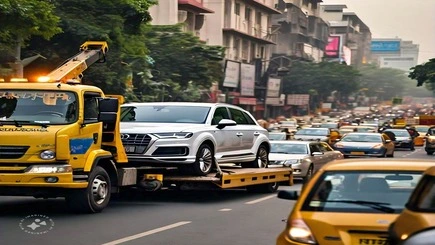The owner of a premium diesel car has moved the Supreme Court against the Delhi government’s guidelines for handling end of life vehicles, which mandate the scrapping of diesel vehicles older than 10 years and petrol vehicles older than 15 years. It has been filed as an impleadment application in the MC Mehta case.
The petition argues that these rules, based on earlier orders from the National Green Tribunal and the Supreme Court (in MC Mehta Vs. Union of India case), were being applied without due consideration of the vehicles’ actual emissions or condition, causing undue hardship to vehicle owners.
The petitioner, one Nagalakshmi Laxmi Naraynan, bought her diesel car in 2014 before the NGT order was issued. She paid the full price of the vehicle, inclusive of road tax and registration fees, which guaranteed the vehicle’s operational life for 15 years. The registration certificate was valid till 2029, and the petitioner expected to be able to use the vehicle until that date.
The petitioner said the sudden enforcement of NGT’s scrappage guidelines violates the terms under which the vehicle was purchased. If a vehicle has been purchased lawfully, with all taxes and fees paid for its full lifespan, why should the owner be deprived of the right to use it for the entire 15-year period?
The vehicle in question still has several more years of operational life, as it is only 10 years old and fully capable of being used until 2029, according to its registration.
However, the NGT’s order has suddenly imposed a rule that condemns vehicles older than 10 years, requiring them to be scrapped. This effectively cuts short the remaining one-third of the vehicle’s lifespan, despite it being roadworthy and compliant with the required emission norms.
If the petitioner’s vehicle continues to meet the pollution norms that apply to vehicles less than 10 years old, why should it be scrapped? The guidelines do not distinguish between vehicles that are environmentally compliant and those that aren’t.
The blanket approach to banning vehicles based on age, without considering their condition or emissions, causes losses to consumers and creates unnecessary national waste.
By forcing the scrappage of well-maintained and compliant vehicles, the policy results in the destruction of assets that still have years of usability left. This not only causes direct financial harm to the vehicle owners but also contributes to a larger problem of resource waste at a national level.
Further, the petitioner contended against making the scrappage policy retrospective and said it should be prospective. “If the government is permitting the sale of a vehicle with a 15-year registration period, how can it retrospectively impose a ban before the end of that period?”
The sudden imposition of a 10-year limit, without considering the purchase date or the condition of the vehicle, creates uncertainty and financial hardship for vehicle owners, said the petition drawn by advocate Abhinav Verma and filed by AOR advocate Charu Mathur.


